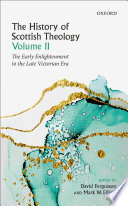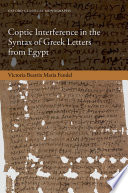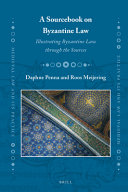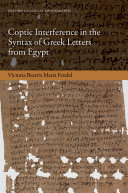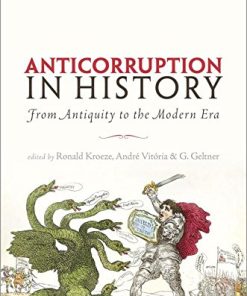Greek Epigram from the Hellenistic to the Early Byzantine Era 1st edition by Maria Kanellou, Ivana Petrovic, Chris Carey 0192573799 9780192573797
$50.00 Original price was: $50.00.$25.00Current price is: $25.00.
Greek Epigram from the Hellenistic to the Early Byzantine Era 1st edition by Maria Kanellou, Ivana Petrovic, Chris Carey 0192573799 9780192573797 – Ebook PDF Instant Download/DeliveryISBN:
Full download Greek Epigram from the Hellenistic to the Early Byzantine Era 1st edition after payment.
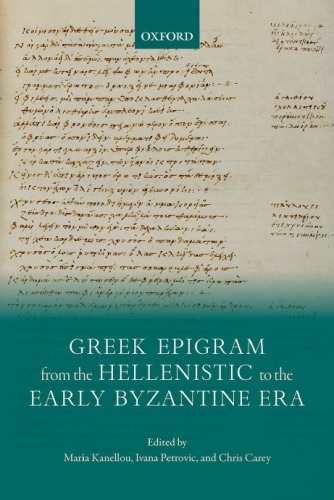
Product details:
ISBN-10 : 0192573799
ISBN-13 : 9780192573797
Author : Maria Kanellou, Ivana Petrovic, Chris Carey
Greek epigram is a remarkable poetic form. The briefest of all ancient Greek genres, it is also the most resilient: for almost a thousand years it attracted some of the finest Greek poetic talents as well as exerting a profound influence on Latin literature, and it continues to inspire and influence modern translations and imitations. After a long period of neglect, research on epigram has surged during recent decades, and this volume draws on the fruits of that renewed scholarly engagement. It is concerned not with the work of individual authors or anthologies, but with the complexities of epigram as a genre, and provides a selection of in-depth treatments of key aspects of Greek literary epigram of the Hellenistic, Roman, and early Byzantine periods. Individual chapters offer insights into a variety of topics, from the dynamic interactions between poets and their predecessors and contemporaries, and the relationship between epigram and its sociopolitical, cultural, and literary background from the third century BCE up until the sixth century CE, to its interaction with its origins, inscribed epigram more generally, other literary genres, the visual arts, and Latin poetry, as well as the process of editing and compilation that generated the collections that survived into the modern world. Through the medium of individual studies the volume as a whole seeks to offer a sense of this vibrant and dynamic poetic form and its world, which will be of value to scholars and students of Greek epigram and classical literature more broadly.
Greek Epigram from the Hellenistic to the Early Byzantine Era 1st Table of contents:
1. Introduction
1. Inscribed and Literary Epigram
2. The Collective Volume
Part 1: Encountering Epigram
2. Reading Inscriptions in Literary Epigram
3. Lessons in Reading and Ideology: On Greek Epigrams in Private Compilations of the Hellenistic Age
1. Introduction
2. Overview of the Material
3. Lessons in Reading
4. Lessons in Ideology
5. Conclusion
4. A Garland of Freshly Grown Flowers: The Poetics of Editing in Philip’s Stephanos
5. Epigrams on Authors and Books as Text and Paratext
1. Literary Epigrams on Authors and Their Work
2. Epigrams In and On Manuscripts: Book Epigrams
3. Epigrams on Authors and Books: ‘Inscribed’ and ‘Literary’
4. Paratexts: Theory, History, and Typology
5. The Palatine Anthology as a Repository
Part 2: Imitation, Variation, Interaction
6. Miniaturization of Earlier Poetry in Greek Epigrams
1. Introduction
2. Epigrams as Miniatures
3. Shorter Forms Recurring as Miniatures in Epigram
4. Miniature Didactic in Epigram?
5. Conclusions
7. Variations on Simplicity: Callimachus and Leonidas of Tarentum in Philip’s Garland
1. Introduction
2. Poetics and Ethics in Callimachus and Leonidas
3. Reception of Callimachus and Leonidas in the two Garlands
8. The Riddles of the Fourteenth Book of the Palatine Anthology: Hellenistic, Later Imperial, Early Byzantine, or Something More?
1. Introduction
2. Contextualizing the Riddles of the Palatine Anthology
3. In Lieu of a Conclusion: The Long Life of a Riddle
Part 3: Writing Death
9. Death of a Child: Grief Beyond the Literary?
10. Hellenistic and Roman Military Epitaphs on Stone and on Papyrus: Questions of Authorship and Literariness
1. Introduction: The Quest for Kleos
2. From Stone to the Greek Anthology: The Extraordinary Case of Soterichus
3. Individual Epitaphs: Authorship and Commission
4. Hellenistic Military Epitaphs from the Greek Anthology
5. Between the Book and the Stone: Local and Wandering Professional Poets
6. Anonymous Inscriptional Epitaphs preserved in the Greek Anthology: The Case Study of AP 7.228 = HE 44
7. Conclusion
11. Tears and Emotions in Greek Literary Epitaphs
1. Introduction
2. Greek Epigram and the ‘History of Emotions’
3. The Psychology of Reading: Epigrams and Cognitive Processes
4. The Problem of ‘Literary Emotion’
5. Empathy and Emotional Control in Literary Epitaphs of the Third Century bce
6. Satirical, Bucolic, and Biblical Tears in Roman Imperial and Late Antique Epigrams
12. Sea and Land: Dividing Sepulchral Epigram
1. The Living and the Dead
2. The Body and the Soul
3. Examples of More Complex Divisions
4. Conclusions
Part 4: Gods, Religion, and Cult
13. Epigrammatic Variations/Debate on the Theme of Cybele’s Music
1. Galli and the Epigram
2. The Gallus and the Lion in Catullus 63
3. Conclusions
14. Dreadful Eros, before and after Meleager
Part 5: Praise and Blame
15. Mythological Burlesque and Satire in Greek Epigram—A Case Study: Zeus’ Seduction of Danae
1. Introduction
2. Danae’s Seduction by Zeus in Greek Epigrams
3. Conclusions
16. Epigrams on the Persian Wars: An Example of Poetic Propaganda
1. Introduction
2. Propaganda Epigrams in the Hellenistic Period
3. Propaganda Epigrams in Late Antiquity and Early Byzantine Era
4. Conclusions
17. ‘From atop a lofty wall…’: Philosophers and Philosophy in Greek Literary Epigram
1. Introduction
2. Strategies of Praise and Blame
3. The Quarrel
4. In Lieu of an Epilogue: Plato’s On the Soul
Part 6: Words and Images
18. Greek Skoptic Epigram, Ecphrasis, and the Visual Arts
1. Introduction
2. Thematic Reversal: Satire of Bad Artists and Ugly People
3. A Disparaging Evocation of a Work of Art: Skoptic Epigram and Visual Parody
4. ‘Verbal’ Evocation
19. Ecphrasis and Iconoclasm: Palladas’ Epigrams on Statues
20. Art, Nature, Power: Garden Epigrams from Nero to Heraclius
1. Introduction
2. Nero’s Gardens and the Art of Death
3. Justinian’s Garden by the Sea
4. Paul’s Epigrams: A Visitor’s Impressions
5. The Epigrams of Agathias and Arabius: The Garden Speaks
6. The Garden of Heraclius’ Patriarch
7. Conclusion
People also search for Greek Epigram from the Hellenistic to the Early Byzantine Era 1st:
hellenistic greek meaning
hellenistic epigram
greek epigrams
greek epigrammatist
greek hellenistic philosophy
Tags:
Greek Epigram,the Hellenistic,the Early Byzantine Era,Maria Kanellou,Ivana Petrovic,Chris Carey
You may also like…
History - World History
Uncategorized
History - Middle Ages
A Sourcebook on Byzantine Law : Illustrating Byzantine Law through the Sources
History - Ancient History
The Early Greek Alphabets: Origin, Diffusion, Uses 1st Edition
Politics & Philosophy - Anthropology
Anticorruption in History: From Antiquity to the Modern Era (Anti-Corruption in History) 1st Edition
Politics & Philosophy
History - Military History
Purpose and Power: US Grand Strategy from the Revolutionary Era to the Present





